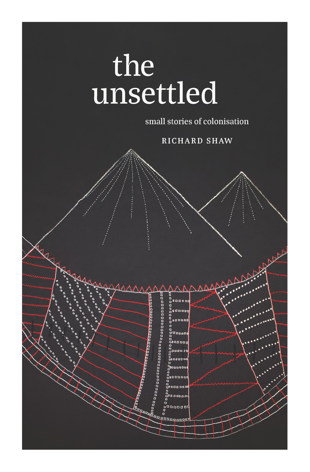Lyn Potter reviews The Unsettled: Small stories of colonisation by Richard Shaw for NZ Booklovers:
‘Richard Shaw’s new book The Unsettled: Small Stories of Colonisation is the sequel to his acclaimed family memoir The Forgotten Coast.
Richard is a professor of politics at Massey University. It was not until he was in his fifties, after his father died, that he began to research his family history and discovered an unsettling truth.
His great-grandfather Andrew Gilhooly was a member of the Armed Constabulary and participated in the invasion of Parihaka on 5th November 1881. Furthermore, he was there for four years as part of the occupation. Afterwards he returned to farm on land unjustly confiscated by the Crown from Taranaki Māori and sold or leased to settler farmers.
The three farms Andrew and his wife Kate eventually ran enabled them to break with centuries of Irish penury and reinvent themselves as settlers, members of a tightly knit coastal Taranaki community that orbited round the Catholic church and the family farm.
Shaw raises a gnarly question: How could those who were themselves the victims of British colonisation in their homelands justify doing the same to Māori?
In The Unsettled: Small Stories of Colonisation Shaw elaborates further on the life of Andrew Gilhooly but also weaves into his narrative the stories of other pākehā familes with long settler histories who made contact with him after The Forgotten Coast was published. Like him, they are coming to grips with the fact that there are parts of their family histories that had been kept secret.
The stories they were told were about heroic forebears, hardworking pioneers who had risen from their arrival as landless peasants to become wealthy landowners. But there was no mention of the fact that their families came to acquire their land through the dispossession of Māori and prospered as a result of colonisation. Now that they are aware of this, these individuals are trying to find ways of dealing with this unsettling truth and to do something positive about it.’
Read the full review here.


